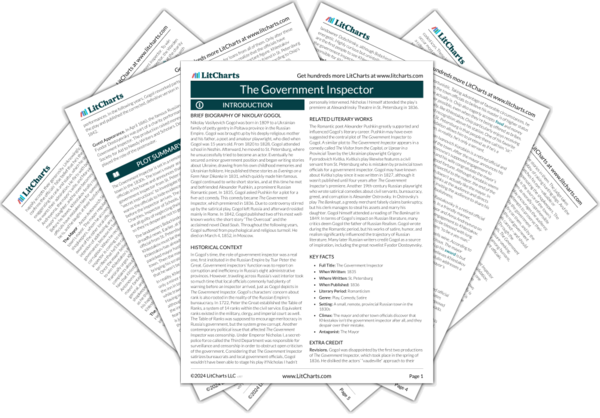By being suspicious of Khlestakov and doubling down on his belief that Khlestakov is the inspector, the mayor thinks he’s being clever and discerning. However, in actuality, the mayor is foolishly ignoring reality at his own expense. Even when faced with the truth, the mayor refuses to reconsider his assumptions about Khlestakov. Meanwhile, Khlestakov rejoices that he’s found both pleasure and external validation in the mayor’s generosity. He’s enlivened by the mayor’s money, hospitality, and eagerness to flatter and please. Ironically, he appreciates the mayor’s sincerity, when in fact Khlestakov is the only honest person in this situation.
